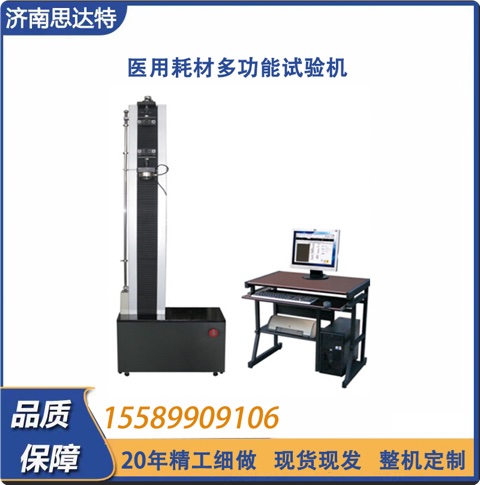
Mechanical Testing of Medical Consumables
Mechanical quality inspection items for medical consumables typically include a range of tests to ensure the safety, reliability, and effectiveness of the products in medical applications. Here are some common mechanical quality inspection items:
1. **Tensile Strength Test**: Assesses the maximum load and断裂伸长率 when the material is subjected to tensile force.
2. **Tear Strength Test**: Measures the material's resistance to tearing.
3. **Puncture Resistance Test**: Evaluates the material's ability to resist puncture by sharp objects.
4. **Compression Strength Test**: Determines the stability and strength of the material under compressive forces.
5. **Bending Strength Test**: Assesses the strength and toughness of the material under bending loads.
6. **Hardness Test**: Measures the hardness of the material, often using a Shore durometer or other hardness testing methods.
7. **Friction Coefficient Test**: Evaluates the sliding characteristics of the material's surface, which is particularly important for gloves and other instruments that require grip.
8. **Adhesion Strength Test**: For adhesives or consumables that require bonding, tests their bonding strength and durability.
9. **Fatigue Test**: Simulates repeated loads during long-term use to assess the material's fatigue life.
10. **Impact Strength Test**: Evaluates the material's toughness under impact or rapid loading.
11. **Creep Test**: Assesses the material's creep behavior and stability under prolonged loading.
12. **Relaxation Test**: Evaluates the material's ability to relax over time under sustained load.
13. **Burst Pressure Test**: For closed medical consumables, such as balloons and catheters, tests their ability to withstand maximum internal pressure.
14. **Dimension Stability Test**: Assesses changes in the material's dimensions under various environmental conditions.
15. **Environmental Stress Cracking Test**: Evaluates the material's resistance to cracking under specific chemical environments or stresses.
16. **Aging Test**: Simulates changes in material performance under long-term use or storage conditions.
These testing items help ensure the performance and safety of medical consumables in actual medical environments, meeting the strict quality standards and regulatory requirements of the medical industry.
